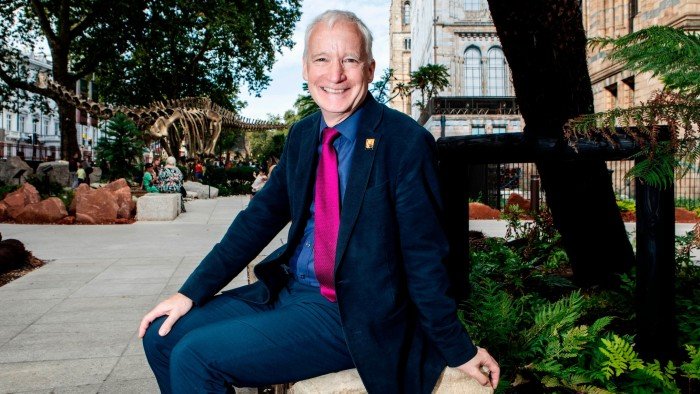Unlock the Editor’s Digest for free
Roula Khalaf, Editor of the FT, selects her favourite stories in this weekly newsletter.
The new chair of the UK’s competition regulator said he has been charged by ministers to help attract the “absolute maximum possible business investment” to Britain — but insisted he can still protect consumers.
Former Amazon executive Doug Gurr was installed at the Competition and Markets Authority last month after ministers ousted predecessor Marcus Bokkerink, in an attempt to bring the regulator in line with the government’s focus on growth.
He was brought in to be a “bridge” between the regulator and the “business community”, he told the FT in his first interview in the role.
Ministers, who approached him last month, were clear that they wanted to secure “a regulatory environment that can encourage the absolute maximum possible business investment”, he added.
He insisted the agency can balance the unashamedly pro-business mandate with its traditional role of protecting consumers from overpowerful companies.
Asked if he was concerned that the regulatory pendulum was swinging too far towards businesses, Gurr said: “Honestly, I don’t think so . . . I think we should all welcome the fact that this is a government . . . that is trying to say ‘how do we support growth in the economy’.”
Gurr — who is also director of the Natural History Museum and chair of the Alan Turing Institute — is keen for the agency to start talking more directly with CEOs and company chairs as well as to consumer groups. Under his predecessor, the CMA set up a “growth and investment council” to liaise with trade body representatives.
Gurr was appointed to try and rejuvenate the agency after accusations from ministers that it was stifling Britain’s attractiveness to global businesses.
The agency was criticised after delaying approval of Microsoft’s $75bn takeover of Activision Blizzard, a deal it eventually cleared.
He said his aim is to make the watchdog “faster and more predictable” than its international rivals in order to convince global investors to pour money into British businesses.
“I would love to be in a position where . . . we can say unambiguously, the UK has a regulatory framework, which is faster and more predictable, more proportional, and has frankly better engagement processes [than other regulators],” Gurr added.
Gurr stressed there was no “conflict” of interest with his former employer. “It’s been well over four years since I’ve left,” he said. “There’s no relationship there.”
Last month the CMA’s independent panel recommended the agency open an investigation into Amazon using its new digital markets powers.
The agency is “acutely conscious”, Gurr said, that we go about our “business properly”.
His comments come after the government published its draft “strategic steer” for the CMA on Thursday setting out its desire for the agency to prioritise “growth”.
CMA chief executive Sarah Cardell separately announced that the agency would cut merger consultation timelines to speed up deals — but added that companies must help the regulator to do so.
“We absolutely need businesses and their advisers to engage in good faith in what we are trying to achieve through these reforms, and it will not succeed if they don’t do that,” Cardell told the FT on Thursday.
The CMA is also planning to start a review of so-called “behavioural remedies” in March — the use of investment commitments or mandatory price freezes to allow a deal to go through. The agency has historically favoured “statutory remedies” that force companies to sell assets for a merger to proceed.
The agency cleared the £16.5bn merger between Vodafone and CK Hutchison’s Three UK under behavioural remedies in December shortly after it announced it would review the measure.
Cardell added: “We have made it very clear that in all [merger] cases where there is a possibility of an effective remedy to resolve our concerns we will do our very best to get to that.”

